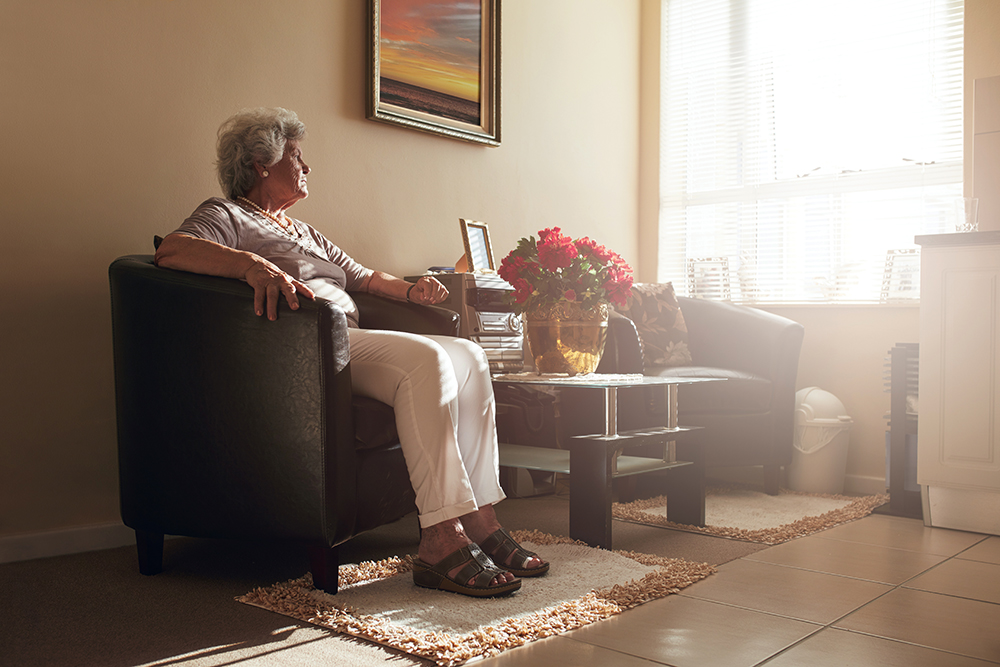Submitted by Villas of Holly Brook
Everyone needs social connections to survive and thrive. But as people age, they often find themselves spending more time alone. Being alone may leave older adults more vulnerable to loneliness and social isolation, which can affect their health and well-being. Studies show that loneliness and social isolation are associated with higher risks for health problems such as heart disease, depression, and cognitive decline.
If you are in poor health, you may be more likely to be socially isolated or lonely. If you are socially isolated or feeling lonely, it can put your physical and mental health at risk. Adults who are lonely or socially isolated are less healthy, have longer hospital stays, are readmitted to the hospital more often, and are more likely to die earlier than those with meaningful and supportive social connections.
What is the Difference Between Loneliness and Social Isolation?
The number of older adults age 65 and older is growing, and many are socially isolated and regularly feel lonely. The coronavirus outbreak in 2020 brought even more challenges due to health considerations and the need to practice physical distancing.
Loneliness and social isolation are different, but related. Loneliness is the distressing feeling of being alone or separated. Social isolation is the lack of social contacts and having few people to interact with regularly. You can live alone and not feel lonely or socially isolated, and you can feel lonely while being with other people.
Older adults are at higher risk for social isolation and loneliness due to changes in health and social connections that can come with growing older, hearing, vision, and memory loss, disability, trouble getting around, and/or the loss of family and friends.
How Can Feeling Lonely or Being Isolated Affect Older Adults’ Health?
People who are socially isolated or lonely are more likely to be admitted to the emergency room or to a nursing home. Social isolation and loneliness also are associated with higher risks for:
- High blood pressure
- Heart disease
- Obesity
- Weakened immune function• Anxiety
- Depression
- Cognitive decline
- Dementia, including Alzheimer’s disease
- Death
People who are lonely or socially isolated may get too little exercise, drink too much alcohol, smoke, and often don’t sleep well, which can further increase the risk of serious health conditions.
People who are lonely experience emotional pain. Losing a sense of connection and community can change the way a person sees the world. Someone experiencing chronic loneliness may feel threatened and mistrustful of others.
Emotional pain can activate the same stress responses in the body as physical pain. When this goes on for a long time, it can lead to chronic inflammation (overactive or prolonged release of factors that can damage tissues) and reduced immunity (ability to fight off disease). This raises your risk of chronic diseases and can leave a person more vulnerable to some infectious diseases.
Social isolation and loneliness may also be bad for brain health. Loneliness and social isolation have been linked to poorer cognitive function and higher risk for dementia, including and especially for Alzheimer’s disease. Also, little social activity and being alone most of the time may contribute to a decline in the ability to perform everyday tasks such as driving, paying bills, taking medicine, and cooking.
How Can You Know Your Risk for Loneliness and Social Isolation?
Those who find themselves unexpectedly isolated due to the illness of a loved one, separation from friends or family, loss of mobility, worsening vision or hearing problems, disability, or lack of mobility or access to transportation, are at particular risk of loneliness and social isolation.
You also may be at greater risk if you:
- Live alone
- Can’t leave your home
- Had a major loss or life change, such as the death of a spouse or partner, or retirement
- Struggle with money
- Are a caregiver
- Have psychological or cognitive challenges, or depression
- Have limited social support
- Have trouble hearing
- Live in a rural, unsafe, and/or hard-to-reach neighborhood
- Have language barriers where you live
- Experience age, racial, ethnic, sexual orientation, and/or gender identity discrimination where you live
- Are not meaningfully engaged in activities or are feeling a lack of purpose
People with hearing loss may find it hard to have conversations with friends and family, which can lead to less interaction with people, social isolation, and higher rates of loneliness.
How Can You Stay Connected with Friends and Family?
There are things you can do to help protect yourself or a loved one from the negative effects of loneliness and social isolation. First, it’s important to take care of yourself. Try exercising, eating healthy, getting enough sleep (7 to 9 hours), and pursuing activities you enjoy to help manage stress and stay as mentally and physically healthy as possible.
It’s also important to stay active and connect with others. People who engage in meaningful, productive activities they enjoy with others feel a sense of purpose and tend to live longer. For example, helping others through volunteering helps you feel less lonely and allows you to have a sense of mission and purpose in life, which is linked to better health. Studies show activities like these may help boost your mood and improve your well-being and cognitive function.
Here are some other ideas to help you stay connected. Remember to take steps to help keep you safe and active during the COVID-19 pandemic.
- Find an activity that you enjoy, restart an old hobby, or take a class to learn something new. You might have fun and meet people with similar interests.
- Schedule time each day to stay in touch with family, friends, and neighbors in person, by email, social media, voice call, or text. Talk with people you trust and share your feelings. Suggest an activity to help nurture and strengthen existing relationships. Sending letters or cards is another good way to keep up friendships.
- Use communication technologies such as video chat, smart speakers, or even companion robots to help keep you engaged and connected.
- Consider adopting a pet if you are able to care for them. Animals can be a source of comfort and may also lower stress and blood pressure.
- Stay physically active and include group exercise, such as joining a walking club or working out with a friend. Adults should aim for at least 150 minutes (2 1/2 hours) of activity a week that makes you breathe hard.
Villas of Holly Brook offers many opportunities for social interaction with community dining as well as planned activities such as games, crafting, walking clubs, and more. Check out the Villas of Holly Brook and Reflections Memory Care website at www.villasofhollybrook.com. We have two communities in Bloomington and now in Streator, too. Call the Executive Director at one of these communities for a personal tour.
For additional informative and inspirational articles, visit 50 Plus News and Views Bloomington Normal Edition online today.










